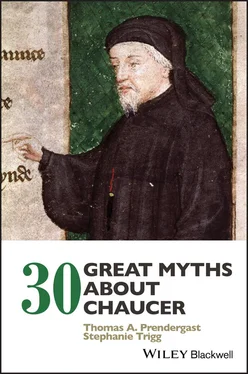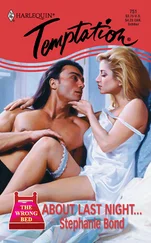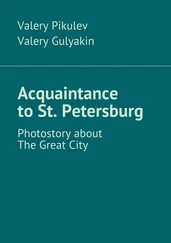Old English is classified as a Germanic language, as are Middle English and Modern English, too. Nevertheless, after 1066 and the defeat of the Anglo‐Saxon King Harold Godwinson by William of Normandy, the language changed gradually but substantially, developing in increasingly fluid exchange with Anglo‐Norman, the French spoken in England after William’s victory. It is difficult to underestimate the enormity of this cultural change, though the greatest linguistic effect was felt first among the nobility, as many Anglo‐Saxon lords were dispossessed after this defeat.
So what was poetic writing like between the eleventh century and the 1360s, when Chaucer began to write? A fair amount of poetry in English has survived, though possibly more has been lost. Lyric poems and songs were not always written down or preserved in manuscripts, and while romances were popular in the thirteenth century, few survive from this period. However, romances such as King Horn and Havelok the Dane offer energetic and enthusiastic accounts of complex dynastic and cross‐cultural plots, determined young heroes, resourceful maidens and the popularity of values such as courage, loyalty and determination. 2 Some of the more improbably complicated plotlines of these and later romances such as Bevis of Hampton give us some idea of the tradition Chaucer was confidently parodying in his Tale of Sir Thopas . Verse forms varied, too, from the rhyming couplets and tail‐rhyme stanzas of the romances and other poems such as the querulous debate poem, The Owl and the Nightingale (late twelfth or early thirteenth century), to the uneven history of unrhymed alliterative verse form that seems to have undergone a kind of “revival” in the mid‐fourteenth century, and the separate history of prose writing in chronicles and various forms of devotional literature. These writings were not always isolated, either. A significant cluster of writing in English, from a range of styles and genres (romances, chronicles, devotional poems, saints’ lives), had been anthologized in the Auchinleck Manuscript (now in the National Library of Scotland, Advocates MS.19.2.1), written in London in the 1340s, and it may be that Chaucer saw and read parts of this manuscript.
Chaucer, then, was very far from the first poet to write in English. Conversely, it seems likely that when he began to write poetry his chosen language would have been French, which was still the dominant language for literary works in England in the fourteenth century, and the language of his first workplaces, the households associated with the royal court. For example, many scholars believe, on circumstantial evidence, that a number of the anonymous French lyrics preserved in the “Ch” manuscript (University of Pennsylvania MS French 15), dated around the 1360s, were written by Chaucer. 3
Chaucer was also the first English poet to translate extensively from Italian, though we should always remind ourselves of the great achievement of John Gower, Chaucer’s contemporary, who wrote substantial works in each of English, French and Latin. In many ways, Gower is the more typical example of fourteenth‐century court culture.
In Myth 1, we discussed briefly the question of Chaucer’s use of English, and the common view, repeated throughout the fifteenth century, that he revitalized the English language and made it worthy of poetry in the high style. As Marion Turner writes of Chaucer’s early poem, The Book of the Duchess , “no one had written this style of poem in English before, and it is extraordinarily interesting that Chaucer now made his intervention into the world of stylized courtly letters in a language that had not previously been a language of literature at the English court.” 4 Turner stresses Chaucer’s relationship with writers in both France and Hainault (now part of Belgium, and the birthplace of Edward III’s queen Philippa), and argues against the idea that Chaucer might be inaugurating some kind of competitive defense of English to rival the dominance of French. This “could only have seemed ludicrous to a multilingual man such as Chaucer, whose deep and engaged reading of his French and Hainuyer contemporaries is evident in almost every line of the Book of the Duchess .” 5
Turner follows Ardis Butterfield here, who shows that “there was nothing isolated or autonomous about fourteenth‐century written English.” For Butterfield, to use English in this kind of courtly setting was to be “profoundly aware” of other languages and the relations between languages. 6 She argues that in its subtle re‐voicings of poems by Guillaume de Machaut and Jean Froissart, this early Chaucerian poem is “brilliantly ambiguous” in its dramatization of poetic subjectivity across cultures and languages: Chaucer is participating in international developments, not striking out for nationalism. As Turner points out, however, after writing The Book of the Duchess Chaucer drew increasingly on the work of Italian writers, especially the poetry of Boccaccio: “Poetically, Chaucer’s consumption of Italian verse was exceptionally productive, generative, and liberating: it energized him and gave him tools and models for innovative literary play.” 7
The misleading myth of Chaucer inaugurating poetry in English can be read as a symptom of proud nationalist (or English‐speaking) ideology that wants to conflate literary greatness with linguistic inventiveness, and that feeds the idea that English poetry and the English language developed more or less in splendid insular isolation. It also falls prey to the desire to attribute the effects of wide‐ranging social and cultural change to one influential genius, and is part of a self‐perpetuating circle: Chaucer is the oldest poet who regularly finds a place on the English curriculum; and so it therefore appears as if he is the first.
By the late sixteenth century, however, Chaucer’s language was regarded as either intriguingly archaic or hopelessly obsolete, requiring a growing panoply of glossing and commentary to render it legible to all but antiquarians. Larger cultural forces will always be more influential than the work of one writer.
Chaucer’s primacy is bolstered by the fact that his language still seems at least recognizable to modern readers, though this familiarity is a result of the happy accident that the Southeast Midlands dialect spoken by Chaucer was the same language as that of the court’s administration. The stability of London as the capital city meant that modern English has most in common with this dialect of Middle English, rendering Chaucer’s language relatively familiar. The language of the Gawain poet, by contrast, seems far more alien, with different dialectal inflectional forms and a far more specialized and regional vocabulary. Chaucer’s own consciousness of dialect variation (in the Reeve’s Tale ) and differences in regional poetic styles (in the Parson’s Prologue ) play no small part in this sense that his language represents a kind of “norm” for English.
Nevertheless, Simon Horobin advises us not to make too many assumptions about the similarities and continuities between Chaucer’s language and our own: in syntax, semantics and vocabulary there are still many important structural differences. 8 On the question of whether Chaucer invented poetic language in English, he did introduce a number of new words (according to J.D. Burnley, Chaucer’s vocabulary was approximately twice as large as Gower’s), 9 though Horobin advises caution here, too: “it is important that we do not treat all French words used by Chaucer as of equivalent status.” 10 For example, one of Chaucer’s linguistic traits involved moving words from legal or political discourse into other contexts, so while the word may not be “new,” it appears so in this unfamiliar setting. This is particularly the case in what is termed Chaucer’s “high style,” which is characterized by words that stand out stylistically and draw attention to themselves. 11
Читать дальше












